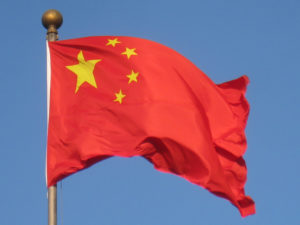 Recently, the Chinese Communist Party proposed removing the normal ten year limit on how long someone can stay President. Xi Jingping looks likely to be President for life.
Recently, the Chinese Communist Party proposed removing the normal ten year limit on how long someone can stay President. Xi Jingping looks likely to be President for life.
Xi is notable for a massive anti-corruption drive, which put a lot of senior party members in jail and terrified many others.
Anti-corruption is good, of course, but in nations where, well, essentially everyone is corrupt, one must watch who is hit for corruption charges and who isn’t. Somehow Xi’s enemies seemed to get hit disproportionately.
Meanwhile, Xi put himself as the leader of every committee of any significance, and lo and behold, he is the indispensable leader now.
And in Saudi Arabia, we have Crown Prince Mohammed bin Salman. Salman is the designated heir, and has been replacing everyone who isn’t loyal to him. Last year, bin Salman took over a Four Seasons hotel, “invited” a number of his relatives and other important people to stay there, then by at least one account (which I find credible) tortured some of them.
His release came hours after he told Reuters in an interview at Riyadh’s opulent Ritz-Carlton hotel that he expected to be cleared of any wrongdoing and be freed within days.
A senior Saudi official said Prince Alwaleed was freed after he reached a financial settlement with the attorney general.
“The attorney general has approved this morning the settlement that was reached with Prince Alwaleed bin Talal, and the prince returned home at 1100 a.m. (0800 GMT),” the official told Reuters, without giving details of the terms.
The decision to free him, and the release of several other well-known tycoons on Friday, suggested the main part of the corruption probe was winding down after it sent shockwaves through Saudi Arabia’s business and political establishment.
Alwaleed was careful to make his bow:
Prince Alwaleed, who is in his early 60s, described his confinement as a “misunderstanding” and said he supported reform efforts by Crown Prince Mohammed bin Salman. (my emphasis)
Mohammed has taken some actions that Westerners approve of, like somewhat improving rights for women, but he is also busily committing genocide in Yemen, screwed up by trying to blockade Qatar (which did not bring Qatar to its knees), kidnapped the President of Lebanon, and is proceeding with a vast privatization of money-earning Kingdom assets, which will earn Saudi Arabia money (but which will be insufficient to offset the loss of earning power).
But it appears as though the Crown Prince is more of a dictator than any ruler in ages (even if he isn’t officially king yet). He has the power, internally, to do things that were simply not possible when some consensus was expected among the royal family.
All of this should be reminiscent of what Putin did when he gained power: He broke a number of oligarchs, sent them to jail or into exile, and took most of their fortunes. But he made deals with others, so long as they were loyal. As a result, his “anti-corruption” efforts weren’t about eliminating corruption at all, they were about loyalty to Putin and the state. Russia continues to be a corrupt mafia state (mafia states have rules, they are just mafia rules). This corruption has hurt its economy, though Putin’s policies are still better than those that came before.
In India, what Modi has been doing bears some resemblance to this pattern as well: Consolidating control disguised as anti-corruption.
Anti-corruption is rather different from seizing power by using corruption charges to break one’s enemies or bring them to heel as new, terrified, allies while warning everyone else not to get out of line.
Real anti-corruption goes deep, hits almost everyone, and generally comes with increases in the wages of bureaucrats at the lower and middle levels, as much corruption is a result of inadequate compensation leading to bribes replacing the actual salary.
Much of this critique, minus the strong man bit, could be applied to the US, I might add, but perhaps another day. In the meantime, appreciate the good those seizing power do, when it exists, but recognize their motives and the dark side, as displayed in Yemen, or when Putin very likely set up the second Chechen war.
The results of the work I do, like this article, are free, but food isn’t, so if you value my work, please DONATE or SUBSCRIBE.
